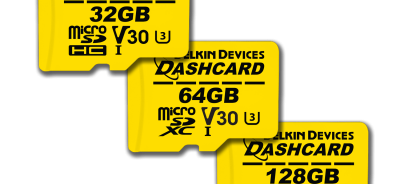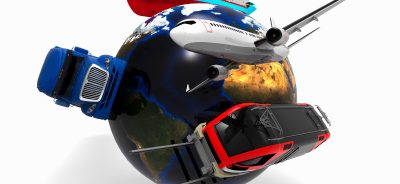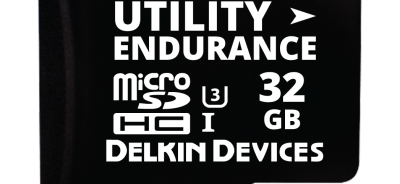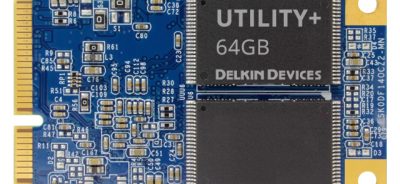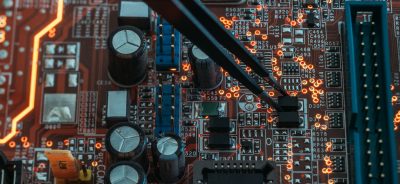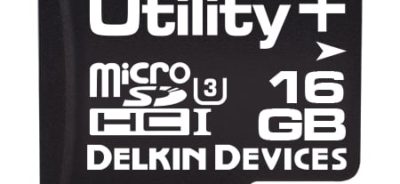Identifying the Best SD Card for a Specific Application
At Delkin Devices, one of the most frequent questions we face from customers is about the strategy for choosing the best SD card. Because host applications can vary so greatly, there simply is not a one-size-fits-all solution that works in every situation. Our customer applications team devotes a great deal of time to working individually with customers who are in the market for an industrial SD card. We ensure that they end up with a card that works as efficiently as possible in their device while staying within their budgets. We’ve helped countless customers solve challenges with their applications and to get the reliable memory they need.
In one example of a problem that Delkin helped to solve, a customer reached out to our team to discuss their needs for an SD card to be used in an application that was not write-intensive. The application was industrial, but the customer was unsure of the file size to be written, the frequency of the write operations, and the operating temperature of the application. The company was looking at TLC, or triple-level cell, SD cards for their application, and they wanted to verify with Delkin that they were making the right choice. The team at Delkin suspected that a commercial utility SD card would be a better fit. Here’s a look at how we solved the problem.
Customer Story
When the customer approached Delkin for assistance, they were frustrated with their current qualification experience. So far, every SD card they had tested in their application had failed. This was impacting their timeline for the application launch and driving up the pre-launch costs. They were also becoming concerned that the issues that they were having were perhaps not being caused by the cards, but by the application itself.
The team at Delkin believed that they could help find the solution by examining the host usage model during the process of qualification testing. To conduct this testing, the customer would increase the temperature to 85°C to replicate likely operating conditions and then write a data sample that the application would record in real time. They would perform the write operation over and over again, in those operating conditions, to test the SD card and see how it reacted.
Delkin Discovery
For Delkin, this qualification testing process provided critical information. Using the SMART data from the cards from the qualification process, Delkin determined that more program and erase cycles were happening during the test than the cards were capable of managing. The customer expected the application to have low demands for write processes, but ultimately, they did not know the size of files that would be written. As such, they were writing 9TB of data during the qualification testing, which proved to be too much. By the end of the qualification process, the cards were only good for read-only operations. Adding the extreme temperatures into the mix further complicated the testing process and rendered the cards even more vulnerable to failure.
Delkin suggested a commercial utility SD card for the customer. This provided better results than the TLC card, but it was not the exact right fit. The issue with both of these cards was the grade of flash. TLC flash is flash memory in which three bits of data are stored per cell. This kind of flash memory is used in many consumer products because it is the least costly form of flash. However, it is not generally well suited to industrial applications. It is slower than other forms of flash and less reliable. It is also much more prone to failure and unlikely to tolerate the extreme conditions, like high temperatures, that are common in industrial operating environments.
Some SD cards feature MLC flash. MLC stands for multi-level cell and refers to flash memory in which two bits of data are stored per cell. MLC is found in both consumer and industrial applications. It is more reliable and faster than TLC flash. SD cards that use MLC and are rated as utility grade are typically eligible for use in high-temperature environments. However, MLC flash is not appropriate for all rugged operating conditions.
The highest grade of flash memory is SLC, or single-level cell. With SLC flash, one bit of data is stored per cell. This kind of flash offers the highest speeds and the greatest level of data security. For many industrial applications, any flash grade other than SLC would be a nonstarter. However, in some cases, utility grade cards are an option to accommodate demands for higher capacities.
Delkin Solution
Delkin’s team dug into further testing and came to the conclusion that an SLC SD card with a low capacity would be ideal for the client’s needs. This kind of card would give the client the reliability they needed in an SD card and would let the launch of the application happen on schedule. Additionally, Delkin showed the customer how to read the SMART data from the card in order to identify any issues before they could lead to failures of the application in the field. The customer was pleased with this solution to get their application operational on time.
Lessons Learned
Many host applications rely on NAND flash memory as a key feature. Using an industrial SD card is a much more reliable choice than opting for a simple memory chip. Adopting an industrial SD card allowed this customer to boost their program and erase cycles 20 times, even with extreme operating conditions. Showing customers how to use flash memory as efficiently as possible in a host application—as Delkin did in this case—should always be the goal for flash memory suppliers.
Lean on Delkin’s Technical Team
Do you have an issue with your host storage? Delkin’s customer applications team is here to help, as we’ve done for hundreds of other customers. Let us evaluate the issues unique to your host design and develop an effective and reliable storage solution for your industrial application.
ORDER DELKIN INDUSTRIAL FLASH STORAGE TODAY through our distribution partner Newark.
 Login
Login Register
Register



